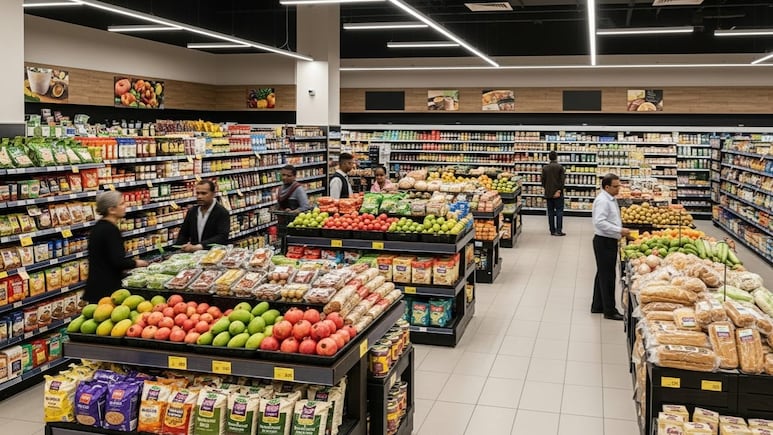
- All Indian breads are now exempt from GST, standardising previous varied rates
- GST on carbonated fruit drinks increased to offset removal of compensation cess
- Pre-packaged paneer faces tax, while unpackaged paneer remains exempt to aid producers
With the latest GST reform, several everyday food and beverage items in India will become more affordable from September 22. The government aims to boost domestic spending and offset the impact of US tariffs on Indian goods. In a press release, the Ministry of Finance addressed some key Frequently Asked Questions (FAQs), including those related to food and beverages, on decisions taken at the 56th GST Council meeting in New Delhi. From the exemption of ultra-high-temperature milk to concerns over the rise in tax on carbonated beverages, the Ministry has responded to these queries.
FAQs On The New GST Rates For Food:
1. UHT (Ultra High Temperature) milk has been exempted. Does this also apply to plant-based milk?
All dairy milk, except UHT milk, was already exempt from GST. UHT milk has now been exempted to ensure equal tax treatment for similar goods. Plant-based milk drinks, except soya milk drinks, attracted 18 per cent GST while soya milk drinks attracted 12 per cent. Both have now been reduced to 5 per cent.
2. What is the reason for the 40 per cent rate on 'other non-alcoholic beverages'?
The aim of the rate rationalisation is to place similar goods under the same rate to prevent misclassification and disputes. This approach has also been applied to 'other non-alcoholic beverages'.
3. What is the GST rate on food preparations not specified in any of the schedules?
Food preparations not specified elsewhere will be subject to a 5 per cent GST.
4. Why was the GST rate revised only for certain varieties of Indian bread?
Bread was already exempt, while pizza bread, roti, porotta, paratha and others attracted different rates. Now, all Indian breads, regardless of name, have been exempted, though only some items were cited as examples.
5. Why has the tax on carbonated fruit drinks and beverages with fruit juice increased?
These items earlier attracted compensation cess along with GST. As the cess has now been removed, the GST has been increased to maintain the earlier tax level.
6. Why is paneer taxed differently from other cheeses?
Earlier, paneer sold unpackaged and unlabelled attracted no tax. The changes now affect only paneer in pre-packaged and labelled form. Paneer, an Indian cottage cheese mainly produced by small-scale units, has been given preferential treatment to support the sector.
7. Why is there a different tax treatment for natural honey and artificial honey?
The change aims to promote natural honey.

